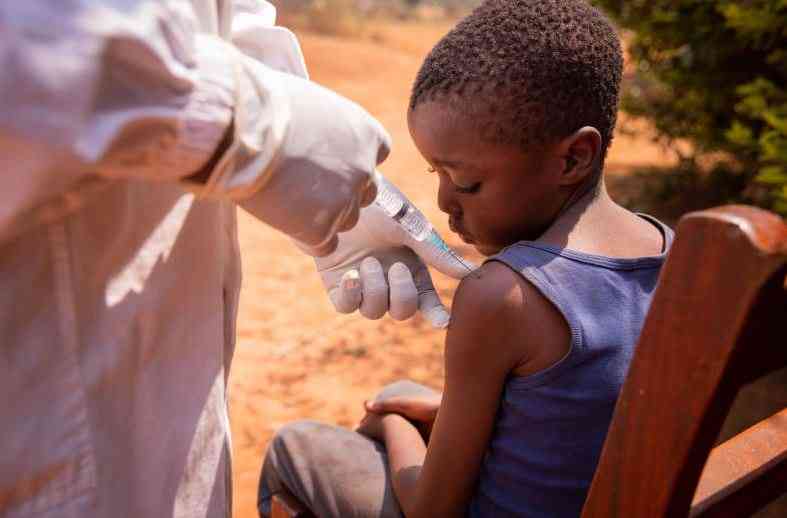Students Lead the Charge in FinTech and Climate Solutions - Africa University News & Events
Africa University recently hosted two innovation-driven hackathons spotlighting student-led solutions to key regional challenges. The FinTech Hackathon, in partnership with ZB Financial Holdings, focused on digital payments and financial technology, while the Climate-Smart Agriculture Hackathon brought together students and experts to develop tech solutions for climate-resilient farming.
In line with Education 5.0, the hackathons promoted the development of intellectual property through the creation of tangible products and services in partnership with industry and further reflect Africa University’s bold commitment to fostering sustainable development through innovation and cross-sector collaboration.
The FinTech hackathon provided an exciting platform for students to pitch their solutions before a distinguished panel of industry and academic experts. The panel included Mr. Patrick Maseko, Executive Head of Innovation at ZB Financial Holdings (ZBFH); Mr. Lloyd Dumba, Executive Head of Digital Channels; and Mr. Godfrey Masava, Executive Head of Enterprise Applications. Representing Africa University were Dr. Tawanda Nyikadzino, Head of the Department of Management and Entrepreneurship in the College of Business and Management Sciences, and DevOps Engineer, Mr. Odell Magwagwa. Their combined expertise offered students valuable feedback and insights into the practical applications of their innovations.
In his opening remarks, Deputy Vice Chancellor, Prof Engineer Talon Garikayi urged participants to come up with solutions that ensure inclusivity in the banking sector.
“Today, as innovators, one of the things I’d be proud of is for you to find out how you are going to bank the unbankable. You cannot talk about financial inclusion until everyone qualifies to own a bank account,” he said.
The competition saw fierce yet inspiring pitches, with the top three teams emerging as winners:
NexPay’s solution focuses on revolutionizing payments with NFC for instant, card less transactions and QR codes for non-NFC devices. The new technology minimizes errors allowing for seamless transactions and aims to combat cash dependencies and POS limitations, enhancing digital financial inclusion. Tinotenda Mukuhwa, a second-year Software Engineering student and a member of the group said, “Winning this hackathon is a testament to the power of innovation in transforming financial transactions. I am proud of what my team has accomplished, and I look forward to seeing Nexpay shape the future of digital payments.”
Payce, an innovative mobile point-of-sale (POS) and inventory management system, aims to empower small and medium enterprises (SMEs) in Zimbabwe and beyond. To Honor Manyangadze, Project Manager for Payce, this pitch was more than just a project, it was a journey of growth and “stepping out of my comfort zone. As a Psychology major, diving into project management of a code-centric, super-technical fintech project- even playing around with codes for the first time, was something I never imagined I’d do.”
Talazo Fintech’s solution targets small-scale farmers across Southern Africa, turning soil health data into financial opportunities. Their unique approach to agri-finance secured them third place.
Head of Innovation at ZBFH, Mr. Maseko congratulated all participants and emphasized the value of their ideas. “We look forward to future interactions. There can only be three winners today, but it doesn’t mean the ideas of other groups aren’t relevant. They are highly-relevant, and we’d love to use them and help you panel-beat them again,” he said.
As the top two winners, NexPay and Payce Apex are now advancing into the next stage of their innovation journey. They will be working closely with the ZB Innovation Hub, gaining access to expert mentorship and the ZB Sandbox environment. This collaboration will help refine their prototypes into fully-fledged financial technology solutions. As part of their achievement, NexPay will receive $1,000, Payce Apex $500, and Talazo $200 in prize money.
Meanwhile, Africa University also took a bold step towards fostering sustainable agricultural innovation by hosting the Climate-Smart Agriculture Hackathon, bringing together students, agritech enthusiasts and industry experts to develop tech-driven solutions for climate resilience in farming.
The hackathon featured a distinguished panel of judges, bringing together a blend of academic expertise and environmental insight. Among the panel were Mr. Timothy Makambwa, Head of the Department and Lecturer in Computer Engineering at Africa University; Ms. Munashe Kurehwatira, Head of the Department of Environmental Studies and Natural Resources in the College of Health, Agriculture, and Natural Sciences; Dr. Farai Chigora, Senior Lecturer in Business Administration and Entrepreneurship at the College of Business and Management Sciences; Dr. Sebastian Chakeredza, Head of the Department of Agricultural Sciences; and Prof. James Madzimure, Endowed Chair in Agribusiness. Additionally, Ms. Chiyedza Sandi, an Environmental Planning and Monitoring Officer at the Environment Management Agency (EMA), brought valuable environmental perspective to the panel. Their collective expertise provided critical evaluation and guidance for the innovative solutions presented by the participants.
Participants pitched cutting-edge solutions aimed at tackling pressing agricultural challenges such as climate adaptation, resource efficiency, and farmer education. After rigorous evaluation, three standout teams emerged victorious:
Mudhumeni AI wowed the judges with their AI-powered platform designed to bridge the gap in agricultural extension services and modernize outdated farming techniques. Their solution provides real-time, data-driven advice to smallholder farmers, helping them optimize crop yields whilst adapting to climate variability. The team aims to secure further investment to scale their innovation across Zimbabwe and beyond.
Talazo Agritech, a familiar name from previous fintech hackathons, returned with a climate-smart farming solution tailored for small-scale farmers. Their approach integrates soil health monitoring and precision agriculture to augment productivity while minimizing environmental impact.
AgriLease introduced an innovative farm equipment leasing platform, enabling smallholder farmers to access tractors, irrigation systems, and other machinery without prohibitive upfront costs. Their model promotes resource-sharing and financial inclusion in agriculture.
With climate change threatening food security, initiatives like this hackathon are imperative in driving sustainable, scalable innovations. Africa University’s collaboration with EMA and industry experts highlights the growing role of academia, technology and policy in shaping a climate-resilient future for farming.
Mr Terry Gomera, on behalf of the Innovation Hub (i-5 Hub), noted that both hackathons show the creativity, resilience, and technical capacity of Africa University students.
“Despite a tight development window of just two weeks, our participants—9 in the Fintech Hackathon and 5 in the Climate Hackathon—rose to the occasion and delivered impressive, solution-driven prototypes that captured the attention of both academic and industry stakeholders. Africa University continues to be a vital enabler of this strategy by offering students a platform to explore, test, and refine impactful ideas,” he said.










